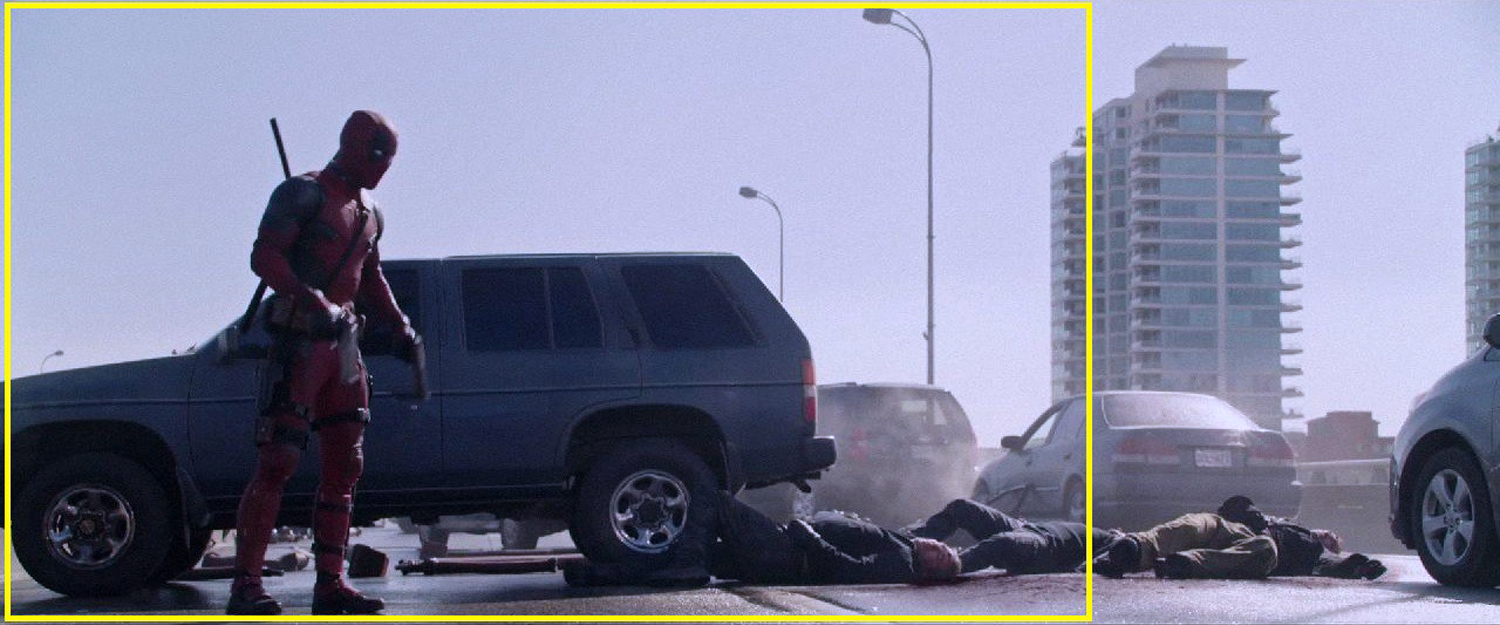Last Friday, Hotstar pretended that its Twitter account had gotten hacked, and convincingly so. The juvenile tweets that came out of the account led many to assume that the handle had indeed been compromised — I was one of the Twitterati who fell for it.
The entire affair turned out to be a promotional activity for the release of Deadpool on Hotstar Premium. Hotstar was creatively cautious in announcing that the film was uncensored — they called it “unspoiled”. They did this for Game of Thrones’s sixth season too.
Unspoiled? Really?
The problem is: it was not unspoiled. Deadpool was cropped on Hotstar from its original aspect ratio of 2.35:1 to 16:9. That’s a 25% loss of image. In other words, Hotstar spoilt 1/4th of the movie.
Deadpool was cropped on Hotstar from its original aspect ratio of 2.35:1 to 16:9. That’s a 25% loss of image. In other words, Hotstar spoilt 1/4th of the movie
For reference, the Central Board of Film Certification (CBFC) either cut or modified minutes minutes and 53 seconds from Deadpool. From a runtime of one hour 50 minutes, that’s a loss of around 3.5%.
Hotstar spoiled Deadpool seven times worse than the censor board.

“There is no problem”
Now, this is not a one-off mistake, mind you. Nearly every film on Hotstar Premium is cropped. And Hotstar told me that it had no plans to fix this. Indeed, they don’t even consider it a problem.
The streaming service has a huge quality control issue — which is the complete lack of it.
Twentieth Century Fox and other content providers gave Star the cropped version of their films for TV broadcast, which is fine, because that’s a standard practice around the world. However, Star failed to also acquire these films in their original aspect ratio for their online release.
The streaming service has a huge quality control issue — which is the complete lack of it
When I pointed this out to them a few months ago, they said that this was just how the films were given to them, and that “there is no problem to fix.” They refused to pursue the case any further.
I disagree. Cropping films is a fundamental distortion of the way cinema is intended to be watched. When 4:3 TVs were the norm, it was impractical to show widescreen films on them, so cropping was an interim solution. Today, with wider screens, we no longer need to sacrifice cinematic fidelity simply for an image to fill up a screen completely. The black bars on the widescreen film you’re playing on your laptop aren’t really messing with your movie-watching experience.
Netflix sees the ‘problem’
Hotstar says there is no problem with their cropped films. Their largest competitor disagrees.
When Netflix found out that a film on their catalogue was cropped, here’s how they reacted: “We eventually realised our error and issued a re-delivery request from the content owner to receive this film in the original aspect ratio that the filmmakers intended for viewing the film. Versionitis from the initial delivery resulted in a poor customer experience and then Netflix and the content owner … new deliveries to fix the customer experience.”
When it comes to the three essential criteria for streaming services — high quality standards, affordable pricing and no censorship — Indians sadly have no choice but to settle for just two
This is from a post on their Tech Blog in 2012, when online film streaming was still finding its feet. In 2016, Hotstar does not see the problem with delivering a defective product to paying customers.
Two out of three
Combined with Amazon Prime Video’s unnecessary censorship of several titles, this is an unsettling portrait of the video streaming industry in India. Streaming services need to have high quality standards, affordable pricing, and no censorship.
Hotstar lacks the first, Netflix lacks the second, and Amazon the third.
When it comes to these three essential criteria for streaming services, Indians sadly have no choice but to settle for just two.
Subscribe to FactorDaily
Our daily brief keeps thousands of readers ahead of the curve. More signals, less noise.
To get more stories like this on email, click here and subscribe to our daily brief.
Disclosure: FactorDaily is owned by SourceCode Media, which counts Accel Partners, Blume Ventures and Vijay Shekhar Sharma among its investors. Accel Partners is an early investor in Flipkart. Vijay Shekhar Sharma is the founder of Paytm. None of FactorDaily’s investors have any influence on its reporting about India’s technology and startup ecosystem.








